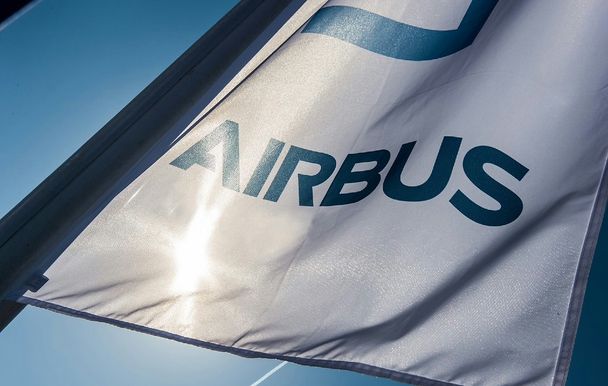Airbus Perlan Mission II sets sail for Argentina to begin glider flights aimed at edge of space

The Perlan 2 stratospheric glider has gone to sea, departing the United States aboard a container ship on the first leg of a journey that will end in El Calafate, Argentina, by mid-August. The journey marks a transition from a successful six-month flight test program in Minden, Nevada, to mission flights in Argentina’s Patagonia region, where wind conditions will allow the team to begin high-altitude aerospace and climate research.
“The project has achieved its test flight objectives in the U.S. and now we’re ready to head to Argentina, where we will attain critical knowledge about our atmosphere. During our research flights we hope to set a new world altitude record for gliders,” said Ed Warnock, CEO of the Perlan Project. “We’re incredibly thankful for all the volunteers, sponsors, friends, plus product and service providers who have helped us reach this important milestone.”
The Perlan 2 glider is a pressurized sailplane designed to ride updrafts called “mountain waves” that, in certain regions near the north and south poles, can reach into the stratosphere. For a brief period in August and September every year, the weather in the Andes mountains near El Calafate is often just right to generate these elusive stratospheric mountain waves.
Allan McArtor
CEO of Airbus Group, Inc.
We’re all very proud this week to see this unique sailplane begin this next important part of its amazing journey
Perlan 2 is designed to ride these waves up to 90,000 feet without requiring the two-person crew to wear pressure suits. Although this summer’s research program will likely focus on lower altitudes, project pilots may still break the world gliding altitude record of 50,671 feet, set in 2006 by Steve Fossett and Perlan Project founder Einar Enevoldson in the unpressurized Perlan 1 glider.
“The extraordinary vision of the Perlan Project is to soar at heights where even powered aircraft can’t maintain level flight, and it’s been our privilege to help them get from a vision to a flying aircraft capable of reaching that goal,” said Allan McArtor, CEO of Airbus Group, Inc. “We’re all very proud this week to see this unique sailplane begin this next important part of its amazing journey.”
Lacking an engine that would contaminate air samples, the Perlan 2 glider is uniquely able to collect data on upper-level weather patterns and the condition of the atmosphere, yielding new insights into climate change. The aircraft will carry experiments from earth scientists around the globe, as well as from school and university classrooms. Its flights in the upper atmosphere will also provide Airbus valuable data on high-altitude flight.
Interested observers can track Perlan 2 on its journey to El Calafate and follow the progress of Airbus Perlan Mission II flights via Twitter @PerlanProject and #PerlanPostcards.
Images & Video/B-roll available: http://bit.ly/perlanpresskit
Additional information available at: www.airbusgroup.com/Perlan.
About Airbus Group
Airbus Group is a global leader in aeronautics, space and related services. In 2015, the Group -- comprising Airbus, Airbus Defence and Space and Airbus Helicopters -- generated revenues of €64.5 billion and employed a workforce of around 136,600.
About Airbus Perlan Mission II
Airbus Perlan Mission II is an initiative to fly an engineless glider to the edge of space, higher than any other winged aircraft has operated in level, controlled flight, to open up a world of new discoveries related to high-altitude flight, climate change and space exploration. This historic endeavor is the culmination of decades of research and engineering innovation, and the work of a tireless international team of aviators and scientists who volunteer their time and expertise for the non-profit Perlan Project. The project is supported by Airbus Group and a group of other sponsors that includes Weather Extreme Ltd., United Technologies and BRS Aerospace. For more information go to www.perlanproject.org; for press kit and visuals go towww.airbusgroup.com/Perlan.
Perlan's other sponsors:
United Technologies
Weather Extreme Ltd.
BRS Aerospace
Equipment, service and institutional donors:
Automated Metal Products
Bonehead Composites
Cobra Trailer
Community Foundation of Western Nevada
DeLorme inReach
Epic Aircraft
Garmin
Iridium Communications Inc.
Miller Nash Graham & Dunn
Sandia Aerospace
Silicon Valley Community Foundation
SIMCOM
SoaringNV
Soaring Society of America
Trig Avionics
Whelen Engineering
Media contacts:
| North America: James Darcy |
james.darcy@airbus.com +1 571-214-1722 (mobile) |
|
Latin America: |
+1 305-263-7717 |
|
Europe: Daniel Werdung
Matthieu Duvelleroy |
daniel.werdung@airbus.com
matthieu.duvelleroy@airbus.com |
Summary
- Team relocating to El Calafate, Argentina, after successful flight test program in Minden, Nevada
- Pilots will look for stratospheric mountain waves in Patagonia, aiming to break world record for gliding and collect new data about upper atmosphere, climate change